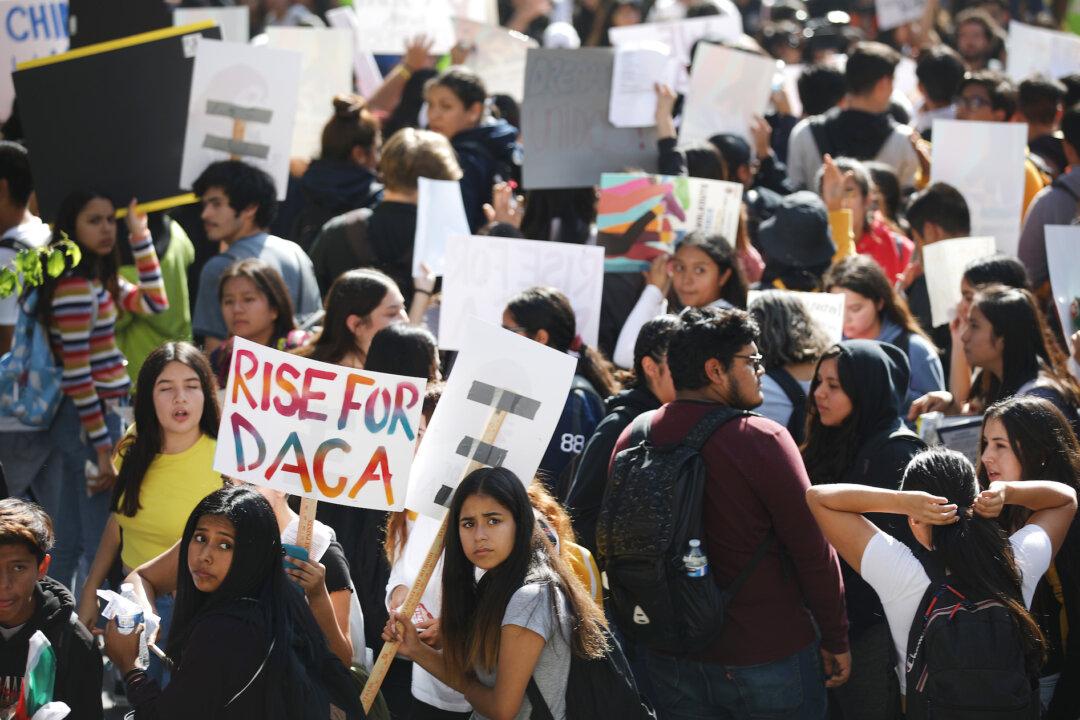A federal judge in Texas on Wednesday declared the revised version of the Deferred Action for Childhood Arrivals (DACA) program illegal.
U.S. District Judge Andrew Hanen’s ruling reiterated that the Obama-era federal policy is unlawful and should have come from Congress. DACA provides hundreds of thousands of illegal immigrants brought to the United States as children with a two-year renewable shield from deportation.





